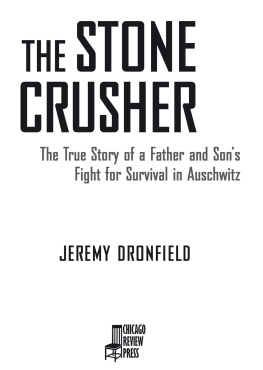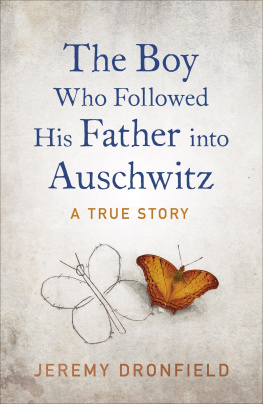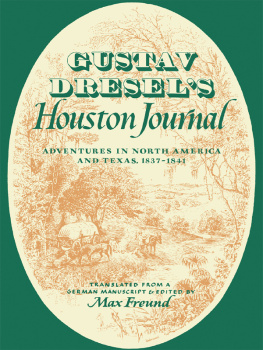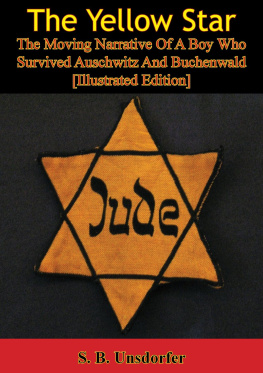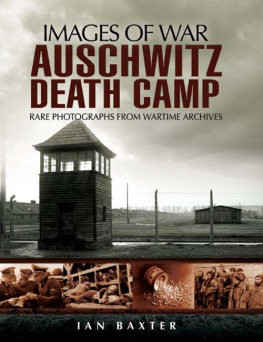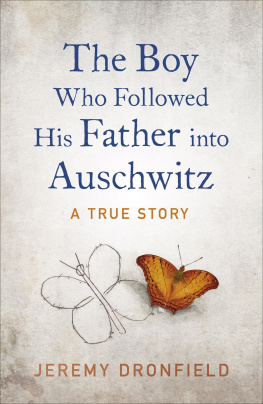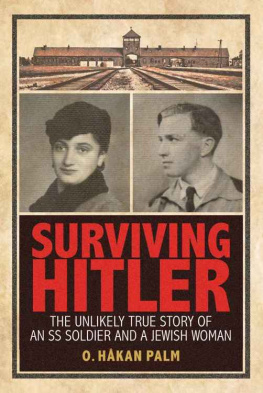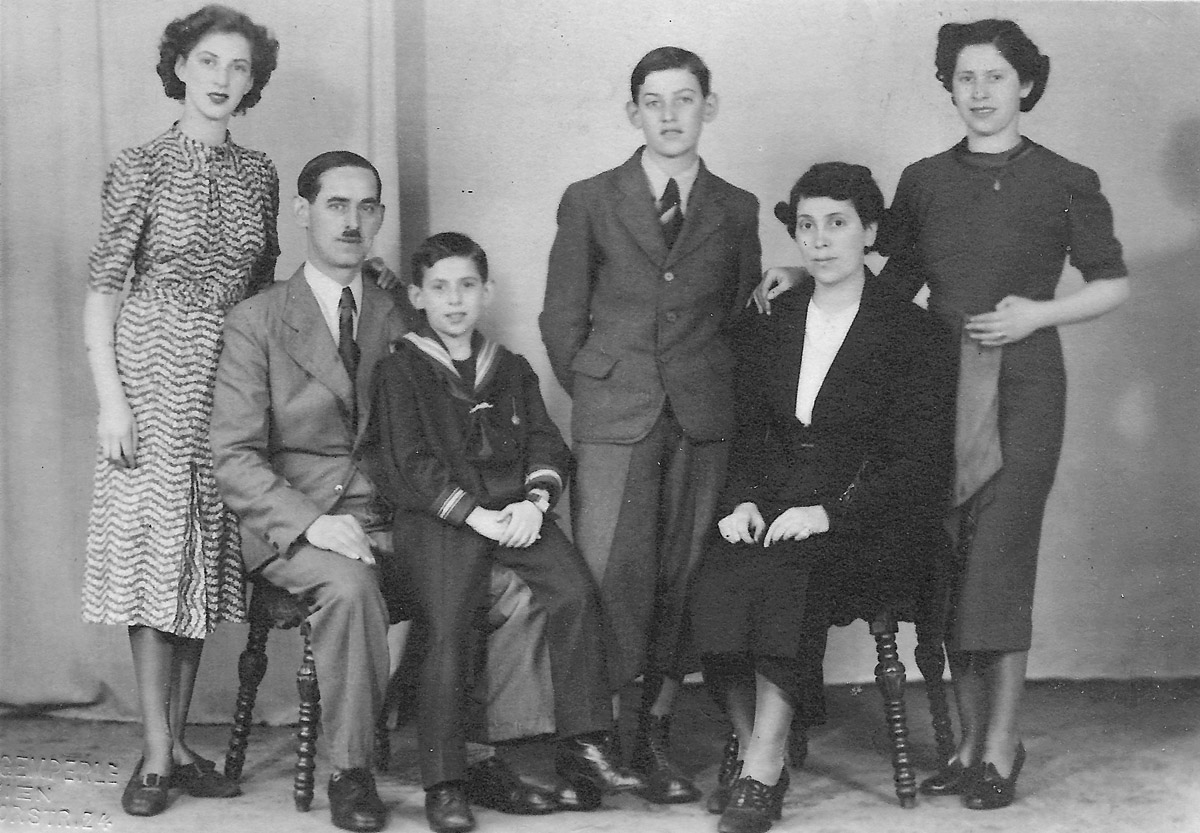
The Kleinmann family in April 1938. From left: Herta, Gustav, Kurt, Fritz, Tini, Edith.
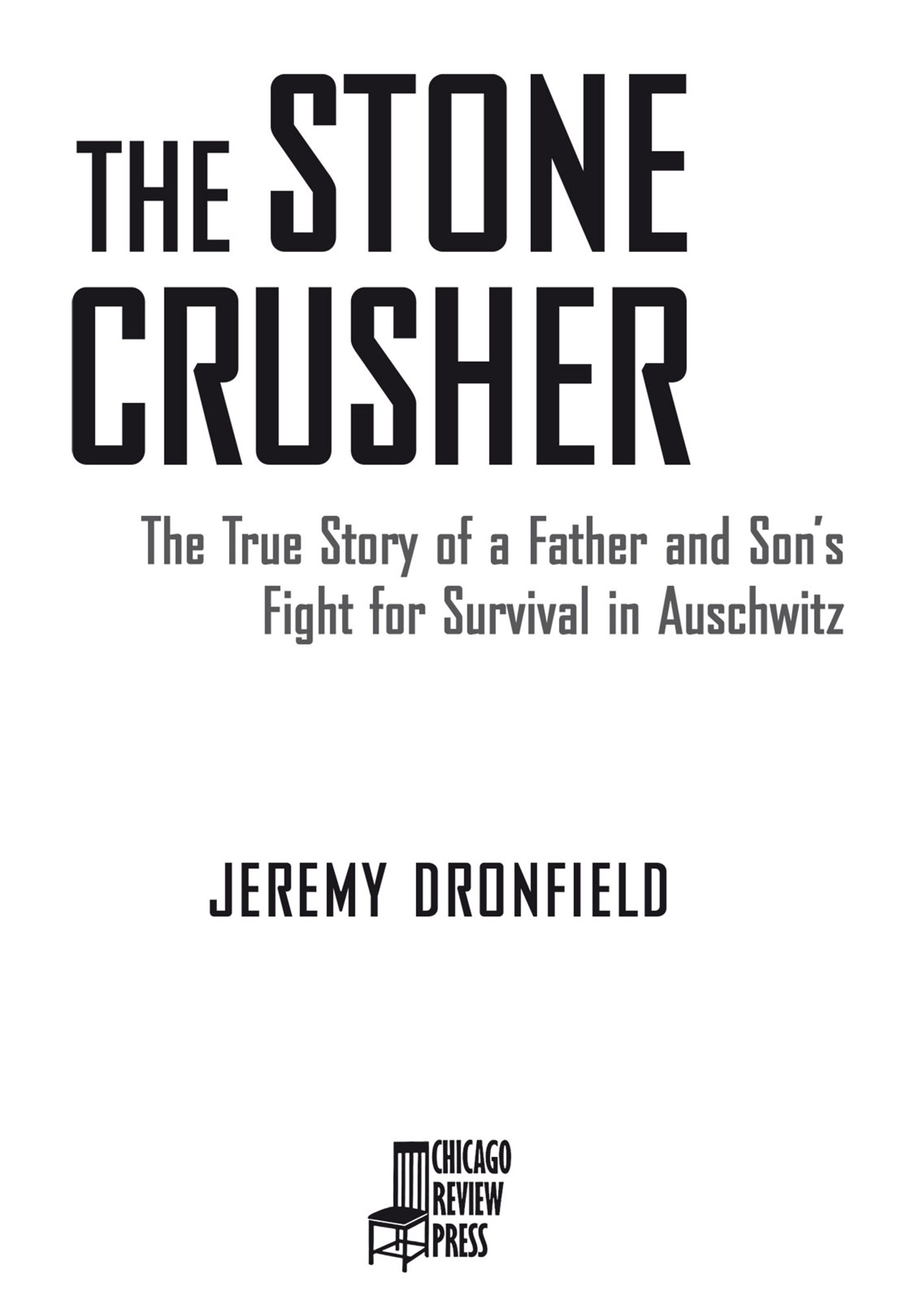
Copyright 2018 by Jeremy Dronfield
All rights reserved
First edition
Published by Chicago Review Press Incorporated
814 North Franklin Street
Chicago, Illinois 60610
ISBN 978-1-61373-965-5
Library of Congress Cataloging-in-Publication Data
Names: Dronfield, Jeremy, author.
Title: The stone crusher : the true story of a father and sons fight for
survival in Auschwitz / Jeremy Dronfield.
Description: First edition. | Chicago, Illinois : Chicago Review Press
Incorporated, [2018] | Includes bibliographical references.
Identifiers: LCCN 2018005240 (print) | LCCN 2018005978 (ebook) | ISBN
9781613739648 (Adobe PDF) | ISBN 9781613739655 (Epub) | ISBN 9781613739662
(Kindle) | ISBN 9781613739631 (hardback)
Subjects: LCSH: Kleinmann, Gustav, 1891-1976. | Kleinmann, Fritz, 1923- |
Jews--Austria--Vienna--History--1933-1945--Biography. | Holocaust, Jewish
(1939-1945)--Austria--Vienna--Personal narratives. | Buchenwald
(Concentration camp)--Biography. | BISAC: HISTORY / Holocaust. | HISTORY /
Jewish. | HISTORY / Military / World War II. | BIOGRAPHY & AUTOBIOGRAPHY /
Historical.
Classification: LCC DS135.A93 (ebook) | LCC DS135.A93 K574 2018 (print) | DDC
940.53/18092243613aB--dc23
LC record available at https://lccn.loc.gov/2018005240
Typesetting: Nord Compo
Printed in the United States of America
5 4 3 2 1
This digital document has been produced by Nord Compo.
Contents
To Kurt
and
in memory of
Gustav
Tini
Edith
Herta
Fritz
Preface
THIS IS A TRUE STORY. Every person in it, every event, twist, and incredible coincidence is taken from historical sources. One wishes that parts of it were not true, that they had never occurred, so terrible and painful are they. But it all happened, within the memory of the still living, the survivors.
There are many Holocaust stories, but not like this one. The tale of Gustav and Fritz Kleinmann, father and son, contains elements of all the others but is quite unlike any of them. Very few Jews experienced the Nazi concentration camps from the first mass arrests in the late 1930s through to the Final Solution and eventual liberation. None, to my knowledge, went through the whole inferno together, father and son, from beginning to end, from living under Nazi occupation, to Buchenwald, to Auschwitz and the prisoner resistance against the SS, to the death marches, and then on to Mauthausen, Mittelbau-Dora, Bergen-Belsen. Fewer still went through all that and made it home again alive. Luck and courage played a part, but what ultimately kept Gustav and Fritz living was their love and devotion to each other. The boy is my greatest joy, Gustav wrote in his secret diary. We strengthen each other. We are one, inseparable.
This book tells not only their story, but also that of their family: Gustavs wife, Tini; their daughters, Herta and Edith; and younger son, Kurt. Two escaped to freedom overseas; two met their end in a Nazi death camp. Between them, the Kleinmann familys experiences track all those who lived through the Shoah or perished in it. This single familys story is a history of a peoples suffering in microcosm, from invasion to liberation, by way of Auschwitz, English internment, American immigration, and the death camps of the Reichskommissariat Ostland.
Remembering the Kleinmanns experiences is timely now more than ever. Like hundreds of thousands of other Jews, they did all they could to escape the Nazi regime but were frustrated by other nations hostile immigration policiesBritain and America shunned all but a handful, while the press and public condemned and disparaged the foreign refugees.
I have brought the story to life with all my heart. It reads like a novel. I am a storyteller as much as historian. And yet I havent needed to invent or embellish anything; even the fragments of dialogue are authentic, quoted or reconstructed from primary sources. The bedrock is the concentration camp diary written by Gustav Kleinmann between October 1939 and July 1945, supplemented by a memoir by Fritz and a lengthy interview he recorded in 1997. None of these sources makes easy reading, either emotionally or literallythe diary, written under extreme circumstances, is sketchy, often making cryptic allusions to things beyond the knowledge of the general reader (even Holocaust historians would have to consult their reference works to interpret some passages). Gustavs motive in writing his diary was not to inform the public but to help preserve his own sanity; its references were comprehensible to him at the time. Once unlocked, it provides a rich and harrowing insight into living the Holocaust week by week, month by month, and year after year. Most strikingly, it reveals Gustavs unbeatable strength and spirit of optimism:... every day I say a prayer to myself, he wrote in the sixth year of his incarceration. Do not despair. Grit your teeththe SS murderers must not beat you.
Interviews with surviving members of the family have provided additional personal detail. The wholefrom Vienna life in the 1930s to the functioning of the camps and the personalities involvedhas been backed up by documentary research, including survivor testimony, camp records, and other official documents, which have verified the story at every step of the way, even the most extraordinary and incredible.
The witness has forced himself to testify. For the youth of today, for the children who will be born tomorrow. He does not want his past to become their future.
Elie Wiesel, Night
Prologue
Austria, January 1945
Fritz Kleinmann shifted with the motion of the train, shuddering convulsively in the subzero gale roaring over the sidewalls of the open freight car. Huddled beside him, his father watched, face drawn, exhausted. Around them sat dim figures, moonlight picking out the pale stripes of their uniforms and the bones in their faces. It would soon be time for Fritz to make his escape; if he left it any longer, it would be too late.
Eight days had passed since theyd left Auschwitz on this journey. They had walked the first sixty kilometers, the SS driving the thousands of surviving prisoners westward through the snow, away from the advancing Red Army. Fritz and his father had heard intermittent gunshots from the rear of the column as those who couldnt keep up were murdered. Nobody looked back.
At Gleiwitz theyd been put on trains for other camps deeper inside the Reich. Fritz and his father managed to stay together, as they had always done. Their transport was for Mauthausen concentration camp in Austria, where the SS would carry on the task interrupted by the Russian advance, draining the last dregs of labor from the prisoners before finally exterminating them. One hundred and forty men were crammed into each open-topped freight car. At first theyd had to stand, but as the days passed and the cold killed them off one by one, it gradually became possible to sit down. The corpses were stacked at one end of the car and their clothing taken to warm the living.
They might have been on the brink of death, but these prisoners were the lucky ones, the useful workersmost of their brothers and sisters, wives, mothers, and children had been murdered or were being force-marched westward, dying in droves.

